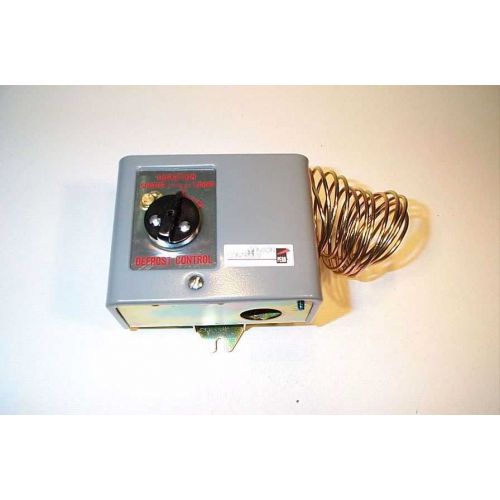HVAC Industry Prospects for Mechanical Engineering Graduates
Is the HVAC industry a viable career path for mechanical engineering graduates? As technological advancements continue to shape our world, the HVAC industry plays a pivotal role in ensuring comfortable and efficient indoor environments. With a focus on regulating temperature, air quality, and humidity, HVAC systems are integral to various sectors, including residential, commercial, and industrial.
Top selling products
HVAC engineer skills are highly sought after in this industry, as they underpin the design, installation, maintenance, and optimization of HVAC systems. This begs the question: How good is the HVAC industry for a mechanical engineering graduate? Let's delve into the opportunities, challenges, and rewards that await within this dynamic field.
The HVAC Industry Overview
The HVAC industry is a cornerstone of modern living and working environments. It encompasses the design, installation, maintenance, and optimization of systems that regulate indoor climate and air quality. HVAC systems are essential in homes, offices, hospitals, manufacturing facilities, and more. They ensure comfortable temperatures, proper ventilation, and optimal humidity levels, contributing to health, productivity, and energy efficiency.
Is HVAC under electrical or mechanical engineering?
HVAC is primarily under the domain of mechanical engineering. While it involves elements of both mechanical and electrical engineering, its core principles heavily rely on mechanical concepts. HVAC engineers design and analyze the intricate systems responsible for heating, cooling, and air circulation. They ensure efficient energy transfer, fluid dynamics, and thermal comfort.
Electrical engineering does play a role, particularly in the control systems, sensors, and electrical components of HVAC systems. However, the fundamental understanding of thermodynamics, fluid mechanics, and mechanical design remains central, making HVAC a specialization within the realm of mechanical engineering.
Why is HVAC important in mechanical engineering?
HVAC (Heating, Ventilation, and Air Conditioning) holds immense importance in mechanical engineering due to its multidisciplinary nature. Mechanical engineers are tasked with designing, analyzing, and optimizing HVAC systems that ensure comfortable and efficient indoor environments. Proficiency in thermodynamics, fluid dynamics, heat transfer, and material science is crucial for creating effective systems.
These HVAC engineers integrate their skills to manage energy consumption, maintain indoor air quality, and regulate temperature. As sustainability gains prominence, mechanical engineers in HVAC contribute to developing eco-friendly solutions, such as energy-efficient designs and renewable energy integration. Overall, HVAC's significance lies in its integration of various mechanical engineering principles to enhance comfort, health, and energy efficiency.
Mechanical Engineering Skills in the HVAC Industry
Given below are the HVAC mechanical engineer skills that are required in the HVAC Industry:
Thermodynamics and Heat Transfer: Understanding heat transfer mechanisms and thermodynamic principles is essential for designing efficient HVAC systems that regulate temperature effectively.
Fluid Dynamics: Proficiency in fluid mechanics aids in designing ventilation systems that ensure proper air distribution, optimizing indoor air quality and comfort.
System Design and Analysis: HVAC mechanical engineers create intricate HVAC system layouts, considering factors like load calculations, equipment selection, and ductwork design for optimal performance.
Energy Efficiency: HVAC design engineers strive to enhance HVAC systems' energy efficiency by implementing advanced controls, variable speed technologies, and sustainable design practices.
Material Selection: Selecting appropriate materials for HVAC components is vital for durability and efficient heat exchange, considering factors like corrosion resistance and thermal conductivity.
Renewable Energy Integration: Incorporating renewable energy sources like solar and geothermal into HVAC designs requires expertise in integrating these technologies effectively to reduce environmental impact and operational costs.
Benefits of Choosing the HVAC Industry
The HVAC industry offers a multitude of advantages for individuals considering a career in this dynamic field. Here are some of the benefits of choosing HVAC industry:
A. Job Opportunities and Stability
In a world where climate control is essential for both residential and commercial spaces, the demand for HVAC services remains consistently high. This translates to a robust job market with numerous opportunities for skilled HVAC technicians, installers, and maintenance professionals. Regardless of economic fluctuations, people will always rely on functional heating, cooling, and ventilation systems, ensuring a steady stream of work for those in the HVAC industry. This stability provides job security and a sense of confidence for individuals pursuing a career in this field.
B. Career Growth and Advancement
The HVAC industry isn't just about fixing and maintaining systems; it also offers significant potential for career growth. As technicians gain experience and expertise, they can transition into more specialized roles, such as system design, energy efficiency analysis, or even managerial positions. Continuous advancements in technology and sustainable practices also provide opportunities for professionals to stay at the forefront of industry trends and innovations. Those who invest in learning and adapting to new developments can carve out a path towards a fulfilling and upwardly mobile career.
C. Hands-On Experience and Problem-Solving
One of the most rewarding aspects of the HVAC industry is the hands-on experience it offers. HVAC professionals work with a variety of intricate systems and components, requiring a deep understanding of mechanical, electrical, and electronic systems. This practical knowledge not only enhances technical skills but also fosters critical thinking and creative problem-solving abilities. HVAC technicians often face unique challenges that demand on-the-spot decision-making and troubleshooting, making every workday a dynamic learning experience.
Know more about How to Become an HVAC Technician.
Education and Training Requirements
Given below are the education and training requirements to become an HVAC mechanical engineer:
- High school diploma or equivalent is typically the minimum entry requirement.
- Vocational or technical training programs in HVAC provide fundamental knowledge.
- An Associate's degree in HVAC technology enhances skills and job prospects.
- Apprenticeships offer hands-on training under experienced technicians.
- Licensing may be necessary; requirements vary by location.
- Ongoing professional development and certification keep skills up-to-date.
- Continuing education ensures familiarity with new technologies and regulations.
- Soft skills like communication and problem-solving are also essential in the field.
Challenges and Considerations
Navigating the HVAC industry involves the below challenges and considerations:
- Physical demands of HVAC work can be strenuous.
- Exposure to varying weather conditions during outdoor installations.
- Technological advancements require continuous learning and adaptation.
- Strict adherence to safety protocols to prevent accidents and injuries.
- Client interactions necessitate good communication and interpersonal skills.
- Balancing workload during peak seasons while maintaining service quality.
- Environmental concerns driving the need for energy-efficient solutions.
- Economic fluctuations may impact demand for HVAC services.
The HVAC industry offers promising prospects for mechanical engineering graduates. With its continuous growth, technological advancements, and emphasis on sustainability, it presents a dynamic and rewarding career path. However, success requires adaptability to evolving trends and a solid foundation in thermodynamics, fluid dynamics, and energy efficiency.
FAQ’s:
Can mechanical engineers do HVAC?
Yes, mechanical engineers can work in HVAC.
Does HVAC have a future?
Yes, HVAC has a promising future due to increasing demand for energy-efficient systems.
Why is HVAC a good career choice?
HVAC is a good career choice due to steady demand, job stability, and competitive salaries.
Is HVAC engineering worth it?
HVAC mechanical engineering is worth it for those interested in technical work and job opportunities.
Is HVAC one of the hardest jobs?
HVAC can be challenging, but whether it's one of the hardest jobs depends on individual perspective.
How competitive is the HVAC industry?
The HVAC industry is competitive, driven by demand for skilled professionals.
 Loyalty Program
Loyalty Program











